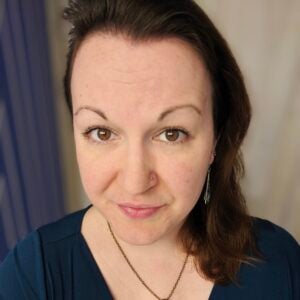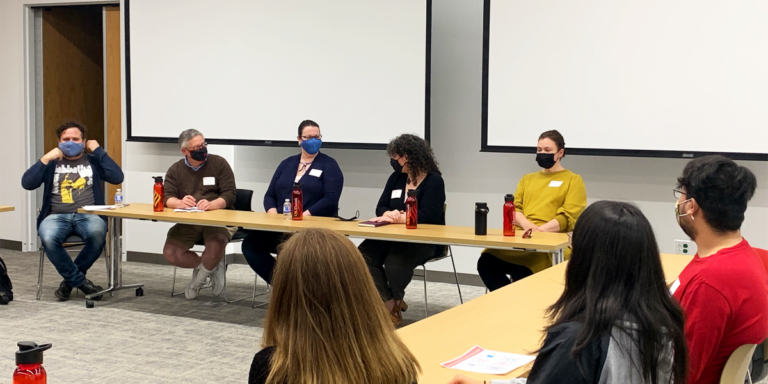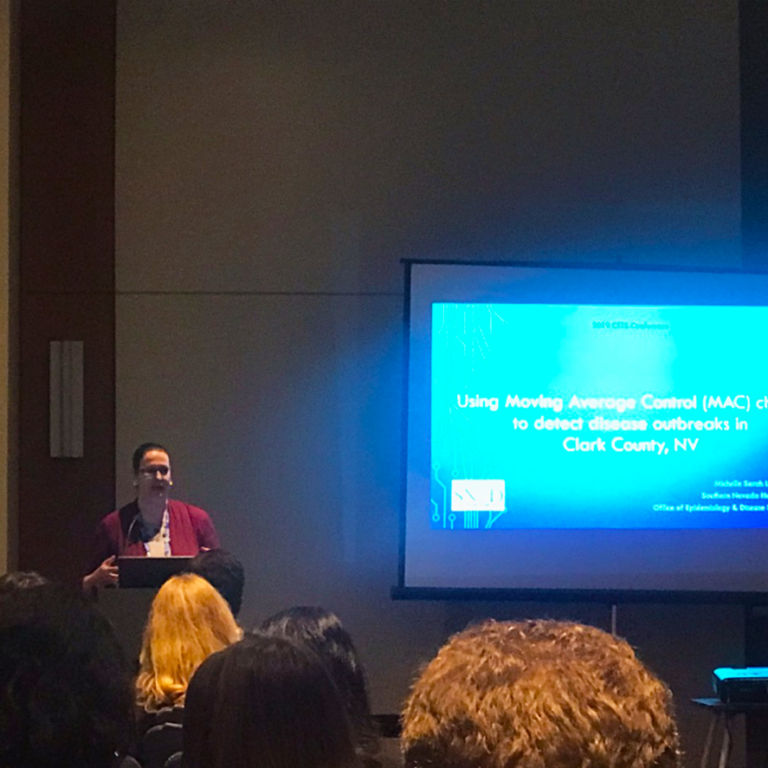
Michelle Livings – Population, Health, and Place
The USC Dornsife Ph.D. Academy supports Dornsife Ph.D. students to help them thrive during each year of their Ph.D. program. The Ph.D. Academy wants to highlight the amazing students that are a part of our unique community.
This month’s student spotlight is on Michelle Livings, a third-year Ph.D. candidate in the Population, Health and Place (PHP) program and the Student Editor for the American Journal of Public Health. The Ph.D. Academy interviewed Michelle after she presented as a panelist for the event on October 12, 2021 about Strengthening Your Skills for Success in the Academy and Beyond. She shared valuable insights on how to explain the “Why” of your scholarship and research.

Michelle Livings (middle) on the Strengthening Your Skills for Success Panel
What is your current research focus?
My dissertation research focuses on the relationship between maternal and adolescent mental health. I am also involved in a multidisciplinary research project about food insecurity and the dynamic food environment in L.A. County.
What is one piece of advice you received as a Ph.D. student that has stayed with you throughout your studies thus far?
One piece of advice that strongly resonated with me is that feedback, even critical feedback, is not personal – if someone is willing to take the time to read and critique your work, they likely have your best interests in mind and are sincerely trying to help.

Michelle presenting at the 2019 CSTE (Council of State & Territorial Epidemiologists) Conference
How has your experience in the Ph.D. Academy help you as a Dornsife Ph.D. student? In what ways did the Ph.D. Academy impact or help your scholarship or research?
I think Ph.D. programs focus on the more “technical” aspects of this level of education (e.g., coursework, research, writing) while soft skills are not explicitly taught. The Ph.D. Academy has been very helpful in terms of preparing me as a Dornsife Ph.D. student for the non-technical aspects of my degree and future career by providing a space for my colleagues and me to discuss soft skills such as communication and time management, as well as other topics that would be otherwise rarely mentioned, including work-life balance and expectations at all stages of the Ph.D. and beyond. I’m confident that I’ll finish my Ph.D. as not only an expert in my field, but also a confident communicator, a flexible collaborator, and a supportive mentor for my future students – thanks to the Ph.D. Academy.